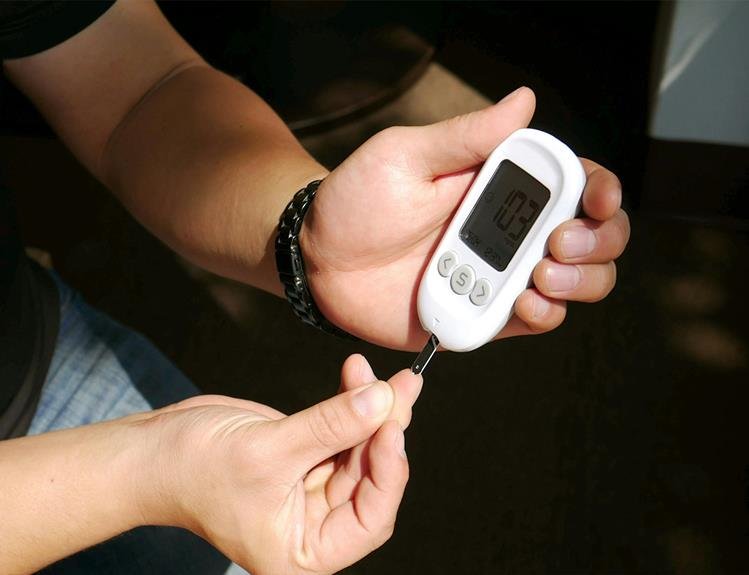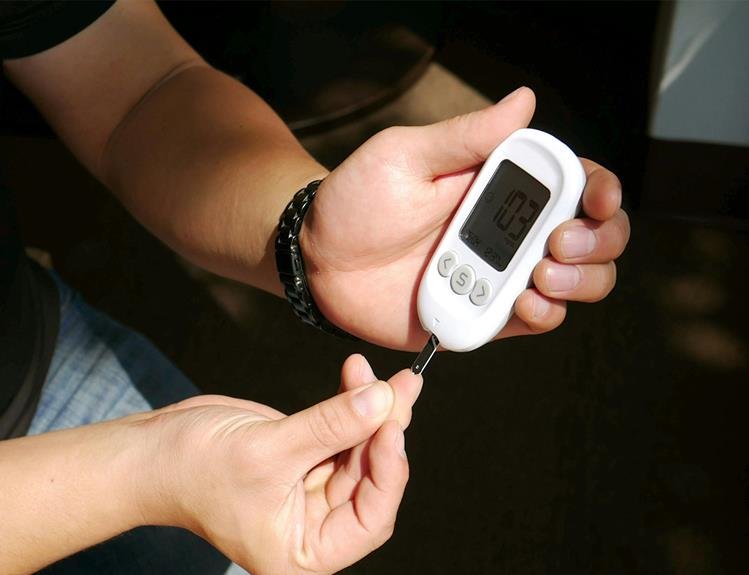Understanding the Risk Factors for Diabetes-Related Amputations
When it comes to the risk factors for diabetes-related amputations, it's crucial to acknowledge the intricate web of health issues that can lead to such a significant outcome. From the impact of poor blood sugar control to the influence of peripheral neuropathy, each factor plays a vital role in determining the risk of amputations for individuals with diabetes.
However, there's one key element that often gets overlooked, yet its contribution to the likelihood of amputations is substantial. Understanding this factor could be the key to preventing devastating consequences.
Impact of Poor Blood Sugar Control
Poor blood sugar control significantly increases the risk of diabetes-related amputations. When your blood sugar levels are consistently high, it can lead to damage in the blood vessels and nerves, particularly in your extremities. This damage reduces blood flow and impairs sensation, making it more likely for wounds to develop and go unnoticed. Without proper healing and with continued high blood sugar levels, these wounds can worsen and eventually lead to serious infections or ulcers. In severe cases, these complications may necessitate amputation to prevent the spread of infection and further health risks.
Maintaining good blood sugar control through a balanced diet, regular exercise, and proper medication management is crucial in reducing the risk of diabetes-related amputations. By keeping your blood sugar levels within the target range recommended by your healthcare provider, you can help preserve the health of your blood vessels and nerves, lowering the likelihood of developing complications that may ultimately lead to amputations. It's essential to monitor your blood sugar levels regularly and seek medical advice if you're struggling to keep them within the desired range.
Influence of Peripheral Neuropathy
High blood sugar levels can lead to damage in the blood vessels and nerves, particularly in your extremities, which plays a significant role in the development of peripheral neuropathy. Peripheral neuropathy is a common complication of diabetes that affects the nerves responsible for transmitting sensations to the brain and spinal cord. When these nerves are damaged, you may experience symptoms such as numbness, tingling, or burning sensations in your hands and feet.
The influence of peripheral neuropathy on diabetes-related amputations can't be overstated. Due to the loss of sensation in the affected areas, minor injuries can easily go unnoticed and develop into serious infections or ulcers. Without timely intervention, these complications can progress to the point where amputation becomes necessary to prevent further spread of infection.
It is crucial for individuals with diabetes to monitor their blood sugar levels closely and take proactive steps to manage their condition to reduce the risk of developing peripheral neuropathy and ultimately avoid the devastating consequences of amputations.
Role of Peripheral Artery Disease
Discussing the impact of Peripheral Artery Disease (PAD) on individuals with diabetes reveals crucial insights into the progression of complications associated with the condition. PAD occurs when there's a narrowing or blockage of the arteries that supply blood to the limbs, most commonly affecting the legs. For individuals with diabetes, PAD poses a significant risk factor for amputations.
The reduced blood flow to the extremities in PAD can lead to poor wound healing, making individuals more susceptible to infections and ulcers. Moreover, the combination of diabetes and PAD accelerates the progression of atherosclerosis, increasing the likelihood of severe complications such as gangrene.
Monitoring and managing PAD in diabetic patients are paramount to prevent amputations. Lifestyle modifications, medication management, and, in some cases, surgical interventions are essential in controlling PAD progression. Regular screenings for PAD, especially in diabetic individuals, can help detect the disease early and prevent further complications.
Contribution of Foot Ulcers
The presence of Peripheral Artery Disease in individuals with diabetes significantly heightens the risk of developing foot ulcers. Foot ulcers are a common complication of diabetes, particularly when there's reduced blood flow to the lower extremities due to Peripheral Artery Disease. These ulcers often form on pressure points of the foot, such as the ball of the foot or the heel, and can become infected if not properly cared for.
When foot ulcers occur in diabetic individuals, they can be challenging to heal and prone to worsening, potentially leading to serious infections and, in severe cases, amputation. It's crucial for individuals with diabetes to inspect their feet regularly for any signs of ulcers or other abnormalities, as early detection and proper wound care are essential in preventing complications.
To reduce the risk of foot ulcers, it's important to maintain good foot hygiene, wear appropriate footwear, and manage blood sugar levels effectively. Seeking prompt medical attention for any foot issues is vital in preventing the progression of ulcers and minimizing the risk of amputations.
Effect of Smoking on Amputation Risk
Smoking significantly increases the risk of amputations in individuals with diabetes. The harmful effects of smoking on blood vessels and circulation can exacerbate existing issues in diabetic patients.
Smoking constricts blood vessels, leading to reduced blood flow to the extremities, which is already compromised in diabetes. This diminished blood flow impairs the body's ability to heal wounds, especially in the feet, where ulcers can develop and worsen rapidly.
Furthermore, smoking weakens the immune system, making it harder for the body to fight infections that commonly accompany diabetic foot ulcers. The combination of poor circulation, impaired wound healing, and reduced immunity significantly raises the likelihood of infections becoming severe and difficult to treat.
Consequently, this increases the risk of complications that may ultimately result in amputations. Quitting smoking is crucial for individuals with diabetes to lower their risk of amputations and improve their overall health outcomes.
Frequently Asked Questions
How Does Mental Health and Emotional Well-Being Impact the Risk of Diabetes-Related Amputations?
When it comes to diabetes-related amputations, your mental health and emotional well-being play a crucial role. Stress, anxiety, and depression can impact your ability to manage diabetes effectively, increasing the risk of complications like amputations.
Are There Any Specific Dietary Factors That Can Increase or Decrease the Likelihood of Amputations in Diabetic Patients?
When managing diabetes, your diet plays a crucial role. High sugar and unhealthy fats may increase amputation risk. Opt for whole grains, lean proteins, and colorful vegetables. These choices can help reduce the likelihood of amputations in diabetic patients.
What Role Do Genetics Play in Determining an Individual's Susceptibility to Diabetes-Related Amputations?
Genetics can influence your risk for diabetes-related amputations. Inheriting certain genes can make you more susceptible. Understanding these genetic factors can help tailor preventive measures and treatments to reduce the likelihood of amputations.
Is There a Connection Between Sleep Disorders and the Risk of Amputations in Diabetes Patients?
When you have sleep disorders with diabetes, your risk of amputations may increase. Lack of quality sleep can impact blood sugar control and circulation, worsening diabetes complications. It's vital to address sleep issues for better health outcomes.
How Does Socioeconomic Status and Access to Healthcare Services Affect the Likelihood of Amputations in Diabetic Individuals?
Access to healthcare and socioeconomic status play crucial roles in the likelihood of amputations for diabetic individuals. Your ability to afford care and access services impacts your outcomes. Prioritize health resources for better results.
Conclusion
If you don't manage your diabetes well, you could be at risk for an amputation.
Take Sarah, a 55-year-old diabetic who ignored her foot ulcers. Due to poor blood sugar control and smoking, she ended up losing her left leg.
Don't let this be you. Stay on top of your diabetes management, keep your blood sugar levels in check, and quit smoking to reduce your risk of amputation.
Your health is in your hands.






